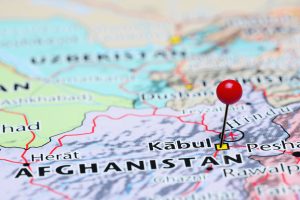Central Asian countries remain closed to refugees and asylum seekers from Afghanistan and uninterested in changing their restrictive policies. European countries are also unwilling to take more refugees, but are ready to financially assist Central Asian countries that allow refugees into their territories. The offer remains without takers.
Uzbek Foreign Minister Abdulaziz Kamilov spoke with incredulity and contempt about NATO’s reported offer to fund Central Asian hosting of Afghan refugees. Even Tajikistan, whose president is the most strident in opposition to the Taliban’s takeover, stopped adhering to international legal norms and began deporting Afghan refugees.
In a recent interview, Kamilov said that NATO offered funding to accept thousands of Afghan refugees. In his view, the offer is an attempt to transfer responsibility for the crisis generated by the Western withdrawal from Afghanistan and the ensuing burden to Afghanistan’s neighbors. Kamilov described the possibility of accepting refugees as a “dead end” for his country, likely referring to a situation in which the Uzbek government is unable to control the inflow of refugees and the refugees themselves are unsatisfied, unable to settle as many desire in third countries beyond the region.
According to Kamilov, Uzbekistan decided not to accept refugees at the beginning of the crisis and that policy has remained unchanged with the help of the Taliban, who have been a reliable partner in containing the flow of refugees. He said that when a large mass of people poured in from Afghanistan “we calmly agreed with the Taliban to prevent an influx of uncontrolled refugees. They helped us, calmed people down, told them: go home and live in peace.”
While Uzbekistan claims to have zero Afghan refugees, Tajikistan had registered 7,500 refugees since the beginning of 2021 until the suspension of international flights with Afghanistan in August. Those new arrivals, plus 6,500 earlier Afghan refugees, make up a total of 14,000 refugees and asylum seekers in Tajikistan. But not only has Tajikistan stopped accepting new migrants, but Dushanbe has begun deporting some back to Afghanistan to await the results of their asylum applications. On November 11, 11 Afghan citizens were forcibly returned to Afghanistan, ostensibly because they lacked temporary residence permits that Tajikistan stopped issuing in July.
Despite these restrictions and closed borders in Tajikistan, attempts to cross into the country are continuing. Afghan Islamic Press reported on October 5 that Taliban border guards forcibly turned back more than 1,000 Afghans who had been trying to cross the border into Tajikistan from northern Badakhshan province. That report matches with a statement from Chairman of the State Committee for National Security of Tajikistan Saimumin Yatimov who said that every day 500-600 people from Afghanistan try to cross the state border with Tajikistan.
Closed Central Asian borders with Afghanistan are clearly not welcomed by European countries, who want regional countries to absorb some of the migrants before they attempt to make the trip to Europe.
In August, the European Union Ministers of Home Affairs issued a joint statement expressing determination to “to prevent the recurrence of uncontrolled large-scale illegal migration” that their countries had been experiencing and recommended their governments “to strengthen the support to the countries in Afghanistan’s immediate neighborhood to ensure that those in need receive adequate protection primarily in the region.” Austria’s conservative Chancellor Sebastian Kurz went further, calling out specific countries: “[P]eople fleeing Afghanistan should stay in the region… neighboring Turkmenistan and Uzbekistan had only taken in 14 and 13 Afghan refugees respectively,” he said.
No Central Asian country is willing to host Afghan refugees and not even financial compensation from European countries can persuade them to change their mind. Refugees from Afghanistan are a security concern for Central Asian countries as much as they are for European countries, while the humanitarian aspect of the crisis is a secondary concern for both. Tajikistan hosts the largest number of Afghan refugees in Central Asia, but has suspended the admittance process and started to reverse the flow with deportations. Meanwhile, the Taliban seem to be honoring the request of bordering Central Asian states and Russia to prevent border crossings.

































